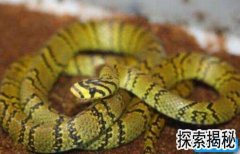八年级上册英语语法 重点知识归纳
学习初中英语,语法是非常关键的一部分,下面我为大家总结了 八年级 上册英语语法,重点知识归纳,仅供大家参考。
英语重点短语
1. 去度假go on vacation
2.待在家里stay at home
3.去爬山go to the mountains
4.去海滩go to the beach
5.参观博物馆visit museums
6.去参观夏令营go to summer camp
7.相当多quite a few
8.为……而学习study for
9.出去go out
10.大部分时间most of the time
11.尝起来很好吃taste good
12.玩得高兴have a good time
13.当然of course
14.给……的感觉;感受到feel like
15.去购物go shopping
重点句型及考点
1.为某人买某物buy sth. for sb. / buy sb. sth.
2.尝起来……taste + adj.
3.看起来……look+adj.
4.除了……之外什么都没有nothing…but+动词原形
5.看起来……seem+(to be)+ adj.
6.到达某地arrive in+大地点 / arrive at+小地点
7.决定去做某事decide to do sth.
8.尝试做某事try doing sth.
尽力去做某事try to do sth.
9.忘记做过某事forget doing sth.
忘记做某事forget to do sth.
10.喜欢做某事enjoy doing sth.
11.想去做某事want to do sth.
12.开始做某事start doing sth.
八年级上册英语句型
1 .tell sb. (not) to do sth.告诉某人(不要)做某事
2 .want sb. to do sth.想要某人做某事
3 .be busy with sth.忙于某事
4 .spend money/time on(doing) sth.花费金钱/时间去做某事
5 .hope to do sth./hope(that)…希望……
6 .wish sb. to do sth.希望某人做某事
7 .find sb. doing sth.发现某人正在做某事
8 .remember to do sth.记得要去做某事 remember doing sth.记得曾经做过某事
9 .forget to do sth.忘记要去做某事 forget doing sth.忘记曾经做过某事
10 .plan to do sth.计划做某事
11 .take sb. some time/money to do sth.做某事花费某人时间/金钱
12 .sb. pay(s) money for sth.某人在某物上花费金钱
以上就是初中网我为大家总结的八年级上册 英语 语法,重点知识归纳,仅供参考,希望对大家有帮助。
八年级上册英语语法 必背知识点汇总
八年级学生学习 英语 需要掌握的语法相对多一点,下面我为大家总结了八年级上册英语语法,仅供大家参考。
初二英语语法知识
由that引导,由于that没有任何意义,也不充当任何句子成分。因此that在非正式文体中可以省略。这类宾语从句通常表达一种陈述意义。
e.g.He told me (that) he would go to Wuhan.
Tom says (that) he must study hard.
She told me (that) she was a student.
(1)如果由and连接两个并列的宾语从句时,第二个that则不能省略。
e.g.She said she liked English very much and that she didn’t like math at all.
(2)常接that引导的宾语从句的谓语动词有:believe, expect, explain, feel, hear, hope, imagine, prefer, promise, report, say, see, tell, think, understand, warn, wish等。
八年级必背的英语知识点
由连接代词或连接副词who, whose, what, which, when, where, how, why引导,含有“谁、什么、哪个、什么时候、什么地方、怎样、为什么”等特殊疑问意义。
e.g.Do you know who they’re talking about?
Can you tell me what they’re looking for?
I don’t know where she has gone.
I wonder how she can find us.
She didn’t tell me where her hometown was.
英语if引导的英语知识点
(1)if引导宾语从句和状语从句的区别
if引导宾语从句时意为“是否”,从句中该用什么时态就应用什么时态。
if引导条件状语从句时意为“假如”,从句中应用一般现在时代替一般将来时。
e.g.She wanted to know if you were a teacher.
I don’t know if the letter is yours.
They’ll go boating if it is fine tomorrow.
I’ll give it to her if she comes next week.
(2)if引导宾语从句时多数情况下可以与whether互换,但如果要突出“究竟是……还是不……”这层意思时,通常用whether,并在后面的加上“or not”,即一般要选择whether构成whether…or not的结构。
e.g.Please find out whether the money is his or not.
Let me know whether you can come or not.
I want to know whether you can help me or not.
以上就是我为大家总结的 八年级 上册英语语法,仅供参考,希望对大家有所帮助。
八年级上册英语重点短语归纳
1.go on vacation去度假、2.stay at home待在家里、3.go to the mountains去爬山、4.go to the beach去海滩、5.visit museums参观博物馆、6.go to summer camp去参加夏令营、7.quite a few相当多、8.study for tests为测验而学习、9.go out出去、10.most of the time大部分时间。 短语归纳 11.have a good time doing=have fun doing =enjoy oneself 玩得高兴 12.of course=sure =certainly 当然 13.feel like 给……的感觉;感受到 14.go shopping 去购物 15.in the past 在过去 16.walk around 四处走走 17.because of 因为 18.a/one bowl of… 一碗…… 19.the next day 第二天 20.drink tea 喝茶 21.find out 找出;查明 22.go on 继续 23.take photos 照相 24.something important 重要的事 25.up and down 上上下下 26.come out 出版,发行 27.go out with anyone 跟别人出去 28.say about 发表对…看法 29.rain hard 雨下得大 30.too much+不可数名词 太多
八年级上册英语重点短语
八年级上册英语重点短语你们都记得哪些?下面是我给大家整理的八年级上册英语重点短语,供大家参阅! 八年级上册英语重点短语 1.去度假go on vacation 2.待在家里stay at home 3.去爬山go to the mountains 4.去海滩go to the beach 5.参观博物馆visit museums 6.去参观夏令营go to summer camp 7.相当多quite a few 8.为……而学习study for 9.出去go out 10.大部分时间most of the time 11.尝起来很好吃taste good 12.玩得高兴have a good time 13.当然of course 14.给……的感觉;感受到feel like 15.去购物go shopping 16. 在过去in the past 17.四处走走walk around 18.因为because of 19.一碗……one bowl of… 20.第二天the next day 21.喝茶drink tea 22.找出;查明find out 23.继续go on 24.照相take photos 25.重要的事something important 26.上上下下up and down 27.出来come up 八年级上册英语必备短语 1. stay at home 待在家里 2. take the bus 乘公共汽车 3. tomorrow night 明天晚上 4. have a class party 进行班级聚会 5. half the class 一半的同学 6. make some food 做些食物 7. order food 订购食物 8. have a class meeting 开班会 9. at the party 在聚会上 10. potato chips 炸土豆片,炸薯条 11. in the end 最后 12. make mistakes 犯错误 13. go to the party 去参加聚会 14. have a great/good 玩得开心 15. give sb. some advice 给某人提一些建议 16. go to college 上大学 17. make(a lot of)money 赚(许多)钱 18. travel around the world 环游世界 19. get an education 得到教育 20. work hard 努力工作 21. a soccer player 一名足球运动员 22. keep„to oneself 保守秘密 23. talk with sb. 与某人交谈 24. in life 在生活中 25. be angry at/about sth. 因某事生气 26. be angry with sb. 生某人的气 27. in the future 在将来 28. run away 逃避;逃跑 29. the first step 第一步 30. in half 分成两半 八年级上册英语常见短语 1. on Saturday afternoon 2. prepare for为„„ 3. go to the doctor 4. have the flu 5. help my parents 6. come to the party 7. another time 8. last fall 9. go to the party 10. hang out 11. the day after tomorrow 12. the day before yesterday 13. have a piano lesson 14. look after 15. accept an invitaton 16. turn down an invitation 17. take a trip 18. at the end of this month 19. look forward to 20. the opening of„ 21. reply in writing 22. go to the concert 23. not„until 24. meet my friend 25. visit grandparents 26. study for a test 27. have to 28. too much homework 29. do homework 30. go to the movies
八年级上册英语重点知识点归纳
八年级上册英语知识点 1. see sb. do sth “看见某人做了某事” 强调动作的全过程; see sb. doing sth. “看见某人正在做某事” 强调动作正在进行。 如:I saw her go across the street. 我看见她过了马路。 I saw her going across the street. 我看见她正在过马路。 2. join sb. 表示 “加入某人的行列”“和某人在一起” join + 组织 表示 “加入某个组织” take part in 表示 “参加某个活动” 如:Will you join us? I will join the skiing club. She is planning to take part in the high jump. 3. arrive in + 大地点 arrive at + 小地点 get to + 地点 = reach + 地点 如:My uncle arrived in Beijing yesterday. I arrived at the Great Wall. = I got to the Great Wall. = I reached the Great Wall. 注意:reach here/there/home = get here/there/home = arrive here/there/home 4. leave… 离开…… leave for… 动身去…/离开到… 如:They are leaving Beijing tomorrow. 明天他们要离开北京。 They are leaving for Japan the day after tomorrow. 后天他们要前往日本。 5. a few“几个,一些” 修饰可数名词 a little“一点点” 修饰不数名词 如:There are a few eggs in the basket. There is a little water in the bottle. 6. how long 表示“多久(时间)”; 提问时间段. how often 表示 “多常; 多久一次”; 提问时间的频率. 如: They will stay in Beijing for a week. → How long will they stay in Beijing? He plays basketball twice a week. → How often does he play basketball? 7. be good at (doing) sth. = do well in (doing) sth. 擅长于(做)某事 如:She is good at (playing) baseball. = She does well in (playing) baseball. 8. make sth/sb + adj. 使某物(某人)在某种状态 keep …sth/sb + adj. 保持某物(某人)在某种状态 如:Playing soccer can make your body strong. Swimming can help to keep your heart and lungs healthy. 八年级英语语法知识 一般将来时 1. be going to 结构 ① 表示主语计划、打算做某事。这种打算常经过预先考虑并含有自己做好某些准备的意思,因此通常认为用be going to表达的行动很可能会见诸实践。 I’m going to play basketball with my classmates this Sunday. 我打算本周日和同学们一起打篮球。 She is going to buy a sweater for her mother. 她打算为她妈妈买一件毛衣。 ②表预测,指根据迹象推测,而且马上或很快就要发生。 Look at those clouds. It’s going to rain. 瞧那些乌云!快要下雨了! 2. will + 动词原形 表示单纯的'将来事实,常与表将来的时间状语如:tomorrow, soon, later, next time(week/month/year…)等连用。will not = won’t; 缩略形式为’ll. ① 表示作出立即的决定。这种意图并未经过事先的考虑或计划,是临时的一种决定。 ---Please put your things away, Tom. 汤姆,把你的东西收拾好。 ---I’m sorry. I’ll do it right away. 对不起。我马上就去做。 ② 表示预测。指说话人对于将来的看法、假设和推测。 I’m sure our team will win next time. 我确信下次我们队会赢。 Maybe she will go to the gym. 也许她会去体育馆。 ③ 表示许诺。 I’ll do better next time. 下次我会做得更好的。 I’ll visit you tomorrow. 明天我会去看你的。 句式:肯定句:I/She/He/They will go to play baseball soon. 否定句:I/She/He/They won’t go to play baseball soon. 一般疑问句:Will you/she/he/they go to play baseball soon? 回答:Yes, I/she/he/they will. No, I/she /he/they won’t. 3. 动词plan, come, go, leave等瞬时动词用现在进行时表示将要发生的事。 I’m coming. 我就来。 He is leaving for Shanghai. 他将到上海去。 We are going to Beijing. 我们将去北京。 八年级英语基础知识点 【重点单词】 1. 词形转换 (1) adj. + ly → adv. loud → loudly soft → softly quiet → quietly clear → clearly angry → angrily easy → easily (2)过去式 fall → fell break → broke lose →lost throw → threw feel → felt (3) ill (同义词)sick (名词)illness start(同义词)begin far(反义词)near smoke(现在分词)smoking careless(反义词)careful important(比较级) more important enjoy(现在分词)enjoying 9.invent(名词)invention; inventor indoor(反义词)outdoor century(复数)centuries coach(复数)coaches feel (名词)feeling tiring(近义词)tired 【重点短语】 1. have a soccer game 进行一场足球赛 2. fall ill 病倒了 3. be a little far from… 离……有点远 4. right away = at once 立刻;马上 5. miss a good chance 错过一个好机会 6. get/miss a goal 得到/失去一分 7. shame on sb. 为某人感到羞耻 8. do one’s best 尽某人的力 9. say sorry to sb. 对某人说抱歉 10. be sure to do sth. 确定做某事 11. be angry with… 生某人的气 12. with one’s help= with the help of sb. 在某人的帮助下 13. serve food 上菜 14. turn up/down… 调高/低(音量) 15. keep sb. doing sth. 让某人一直做某事 16. in a minute 一分钟后;马上 17. on the phone 在电话中 18. take a seat 就坐 19. never mind 不要紧 20. a lot of traveling 一系列旅行
八年级英语知识点
随着全球一体化的发展,我国急需高水平的外语人才。英语作为一门国际性语言,其地位的重要性不容忽视。下面我给你分享八下英语第一单元知识点人教版,欢迎阅读。 八下英语第一单元知识点【重点单词】 matter [?m?t?] v. 重要,要紧,有关系 What’s the matter? 怎么了?出什么事了? sore [s?:(r)] adj. 疼痛的,酸痛的 have a cold 感冒 stomach ['st?m?k] n. 胃,腹部 stomachache ['st?m?ke?k] n. 胃痛,腹痛 have a stomachache 胃痛 foot(复数feet) [fu:t] n. 脚 neck [nek] n. 颈,脖子 throat [θr??t] n. 喉咙 fever ['fi:v?] n. 发烧,发热 lie [la?] v. 躺,平躺 lie down 躺下 rest [rest] n. 剩余部分,其余;放松,休息 cough [k?f] n. & v. 咳嗽 X-ray ['eksre?] n. X光,X射线 toothache [?tu:θe?k] n. 牙痛 take one's temperature 量体温 headache [?hede?k] n. 头痛 have a fever 发烧 break [bre?k] n. & v. 休息,暂停;打破 take breaks (take a break) 休息 hurt [h?:t] v. 伤害,损害,使受伤 passenger ['p?s?nd??] n. 乘客,旅客 off [?f] adv. prep. 离开(某处);从…去掉 get off 下车 to one's surprise 使…惊讶,出乎…意料 onto [??nt?] prep. 向,朝 trouble [?tr?bl] n. 麻烦,烦扰,问题 hit [hit] n. & v. 碰撞,打,打击 right away 立即,马上 get into 陷入,参与 herself [h?:?self] pron. 她自己,她本身(she的反身代词) bandage ['b?nd?d?] n. & v. 绷带;用绷带包扎 sick [s?k] adj. 患病的,不适的 knee [ni:] n. 膝盖 nosebleed [?n??zbli:d] n. 鼻出血 breathe [bri:?] v. 呼吸 sunburned [?s?nb?:nd] adj. 晒伤的 ourselves [ɑ:?selvz] pron. 我们自己(we的反身代词) climber [?kla?m?(r)] n. 登山者 be used to 习惯于… 适应于… risk [r?sk] n. & v. 风险,危险;冒险 take risks (take a risk) 冒险 accident [??ksid?nt] n. 意外事件;事故 situation [?sitju?ei??n] n. 状况,形式,情况 kg=kilogram [?k?l?gr?m] n. 公斤,千克 rock [r?k] n. 岩石 run out (of) 用尽,耗尽 knife [naif] n. 刀,餐刀 cut off 切除 blood [bl?d] n. 血 mean [mi:n] v. 意味着,意思是,意欲 get out of 离开,从… 出来 importance [?m?p?:tns] n. 重要性 decision [d?'s??n] n. 决心,决定,抉择 control [k?n'tr??l] v. 控制,支配,操纵 be in control of 掌管,管理 spirit ['sp?r?t] n. 勇气,意志 death [deθ] n. 死亡 give up 放弃 nurse [n?:s] n. 护士 Judy朱迪 (女名) ancy南希 (女名) Mandy曼迪 (女名) Aron Ralston阿伦·罗尔斯顿 Utah犹他州(美国) 八下英语第一单元知识点【重点 短语 】 1.have a fever 发烧 2.have a cough 咳嗽 3.have a toothache 牙疼 4.talk too much 说得太多 5.drink enough water 喝足够的水 6.have a cold 受凉;感冒 7.have a stomachache 胃疼 8.have a sore back 背疼 9.have a sore throat 喉咙痛 10. take risks 冒险 11.hot tea with honey 加蜂蜜的热茶 12.see a dentist 看牙医 13.get an X-ray 拍X 光片 14.take one’ s temperature 量体温 15.put some medicine on sth. 在……上面敷药 16. give up 放弃 17. sound like 听起来像 18. all weekend 整个周末 19. in the same way 以同样的方式 20. go to a doctor 看医生 21. go along 沿着……走 22. on the side of the road 在马路边 23. shout for help 大声呼救 24. without thinking twice 没有多想 25. get off 下车 26. have a heart problem 有心脏病 27. to one’ s surprise 另某人惊讶的是 28. thanks to 多亏了 ;由于 29. in time 及时 30. make a decision 做出决定 31. get into trouble 造成麻烦 32. right away 立刻;马上 33. because of 由于 34. get out of 离开;从……出来 35. keep on doing sth. 继续或坚持做某事 36. put a bandage on sth. 用绷带包扎 37. fall down 摔倒 38. feel sick 感到恶心 39. have a nosebleed 流鼻血 40. cut his knee 割伤他的膝盖 41. put her head back 把她的头向后仰 42. have problems breathing 呼吸困难 43. mountain climbing 登山运动 44. be used to doing sth. 习惯做某事 45. run out (of) 用完;用尽 46. so that 以便 47. so...that... 如此……以至于...… 48. be in control of 掌管;管理 49. in a difficult situation 在闲境中 八下英语第一单元知识点【重点句型】 1. What's the matter with you?= What'the trouble with you? = What's wrong with you? 你怎么了? 2. What should she do? 她该怎么办呢? 3.Should I take my temperature? 我应该量一下体温吗? 4.You should lie down and rest. 你应该躺下休息一会儿。 5. Do you think it comes from a newspaper or a book? 你认为它是来自报纸还是书呢? 6. I think I sat in the same way for too long without moving.我想我以同样的姿势一动不动地坐得太久了。 7. She said that the man had a heart problem and should go to the hospital. 她说这个人有心脏病应该去医院。 八下英语第一单元知识点基础知识 1. What’ s the matter? 怎么啦?出什么事情了? 【解析】matter/ ' m?t?(r)) /n.问题;事情 What’ s the matter with you?= What’s the trouble with you? = What’ s wrong with you? 你怎么了? 【注】: matter 和trouble 为名词, 其前可加the 或形容词性物主代词,wrong 是adj. 不能加the 【用法】用于询问某人有什么病或某人遇到什么麻烦、问题其后跟询问对象时, 与介词with连用。即: What’s the matter with sb.? = What’s your trouble? = What’s up? = What happens to sb.? — What’s the matter with you ? — I have a bad cold. 2. I had a cold.我感冒了。 have a cold=catch a cold=have the flu感冒 have a fever 发烧 have a cough咳嗽 have a stomachache胃疼,肚子疼 have a toothache牙疼 have a headache头疼 3. 身体部位+ache(疼痛)构成新的复合词 stomach+ache=stomachache head+ache=headache tooth+ache=toothache back+ache=backache后背痛 4. much too+ 形容词,意为 太...... ,too much+名词,意为 很多,大量 。 5. enough【形容、副词】足够的/地,enough放在名前后,形副后。good enough足够好,enough money=much money 6. lie down躺下, lie 躺,躺着,过去式lay;lie说谎,过去式lied 7. maybe “或许”,常用于句首,表示可能性,后加 句子 。Maybe you are right. may be,是情态动词+be的结构,意为“可能,也许”,后加名词、代词或形容词。He may be angry. sound like+名词代词和从句:It sounds like you don’t know the truth. It sounds like a good idea. sound+形容词,“听起来,好像”,The music sounds nice. 9. need 需要,实义动词need+名词,需要某物; need to do sth.需要做某事,主语通常是人,表示人主动的动作:You need to listen carefully during class. need doing sth.主语通常是物,表示被动的动作:Your dirty clothes need washing. 10. get off (the bus) 下(公交车) get on 上车 11. agree 同意,赞同; agree with sth. 同意某事 如:I agree with that idea. agree to sb. 同意某人的意见 如:I agree to LiLei. 12. trouble问题,麻烦 ;be in trouble遇到麻烦,make trouble 制造麻烦 ,have trouble (in) doing sth. =have difficulties (in) doing sth做......有麻烦。 13. right away=right now=at once,意为 马上 。 14. advice [不可数名词]劝告,建议,向…征求意见, give sb. advice on sth.就某事给某人建议; advise [动词] advise sb. to do sth. 建议某人做某事 advise sb. doing sth. advise sb.to do sth.和advise sb.doing sth.的区别 advise的用法搭配有两种: advise sb.to do sth建议某人做某事 advise doing sth.建议做某事 如:He advised going to the movie.他建议去看电影. He advised us to go to the movie.他建议我们去看电影. 请看下面这道题,该选哪个答案?是advise doing还是advise to do? The husband advised_________to the south, but his wife advised him_________up the idea. A. moving, givingB. to move, to giveC. moving, to giveD. to move, giving 【分析】此题容易误选A,因为许多学生都记住了“advise后接动词要用动名词而不用不定式”这一搭配规则。但此“规则”的表述是不准确的,准确的说法应该是:advise后接动词作宾语时,要用动名词,不用不定式;但若其后接的动词前有宾语,此动词用作宾语补足语时,则此动词要用不定式。即说advise doing sth (建议做某事)或advise sb to do sth (建议某人做某事)。类似情况的还有allow(允许),permit(允许),forbid(禁止)等动词,即: allow doing sth允许做某事,allow sb to do sth允许某人做某事; permit doing sth允许做某事,permit sb to do sth允许某人做某事; forbid doing sth禁止做某事,forbid sb to do sth禁止某人做某事。 顺便说一句,要特别注意以上各句型后一结构的被动语态形式,如: We don’t allow smoking in the lab.我们不准在实验室吸烟。 We don’t allow people to smoke in the lab.我们不准人们在实验室吸烟。 People are not allowed to smoke in the lab.人们不准在实验室吸烟。 八年级 英语知识点相关 文章 : 1. 初二英语知识点总结 2. 最新人教版八年级上册英语知识点 3. 八年级上册英语知识点汇总 4. 八年级英语语法知识点归纳总结 5. 八年级上英语知识点总结 6. 八年级上册英语知识点人教版 7. 初二上册英语知识点 8. 初二英语语法知识点汇总 9. 八年级上册英语Units1-10单元知识点归纳





